#but I just think you have wildly misfired in that particular case
Text
another thing I'm kind of sad about re: totk is that I feel like the release completely de-energized the community? I don't know if that's just me, like for sure any game has a shelf life and things get quieter over time, that's normal, but I don't know. We're slightly over 9 months since release and honestly? even the blogs that were hellbent on defending totk as a genuinely great game that would leave a wonderful impact on the gaming community are radio silent right now.
It's not that there isn't any new conversations or cool/creative content or anything, but I actually do believe the Zelda Youtube community when they say that TotK kinda killed the groove a little bit. :/
#thoughts#totk#totk critical#I think the lack of DLC was also a death sentence#because now that we are left with this we're like.... okay....#the game made such a point to cut down a lot of what had people energized in the first place that we're kind of left with nothing#zonai theories? yeah well everything is zonai and nothing matters how about that#the seventh heroine? yeah it was just a guy whatever#link and sidon? how dare you sidon is a MARRIED MAN now#the placement of botw in the timeline? all you have to know is you're all right and you're all wrong <333#ganondorf? lol + lmao#nintendo we can't sustain ourselves on building dickmen on wheels and korok torture device until the next release#“gameplay over story” can build strong communities too#but I just think you have wildly misfired in that particular case#especially since you patch away the various creative uses of ultrahand to break the intended flow of your game#you want a gameplay over story community and then remove tools for speedrunners? ???? what the hell do you WANT nintendo#genuinely
66 notes
·
View notes
Text
Top 25 songs of 2020: Honorable mentions
2020 was not a good year in many respects. But despite the world collapsing around us, there was a shocking amount of great new music.
Some of 2020′s best songs were a good fit for this terrifying year — we’ll get to those ones much, much later in the countdown. But 2020 also gave us gorgeous folk ballads, euphoric dance music and infectiously fun pop and hip-hop that had nothing to do with COVID-19 or any other awful aspects of the year.
Before we get to the proper list, here are 15 nearly-as-good songs that juuuust missed the cut, listed in alphabetical order by the artist’s name.
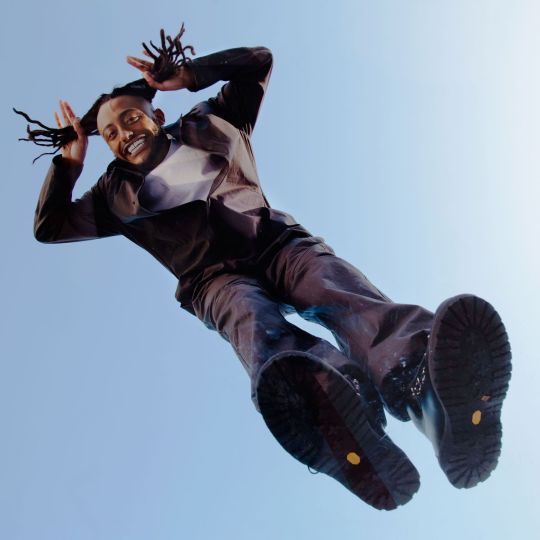
“Shimmy” by Aminé
Oregon’s most prominent rapper — okay, fine, Oregon’s only prominent rapper — came out of the gates blazing this year with “Shimmy.”
Aminé may have heavily sampled Ol’ Dirty Bastard’s classic “Shimmy Shimmy Ya” on his second album’s leadoff single, but he replaces ODB’s chaotic vibes with a cold, snarling precision. He almost evokes Pusha T in his gleeful takedown of his rivals over the ice-cold beat. Pair this banger with one of the year’s best music videos, and there’s no doubt it would sneak onto this list.
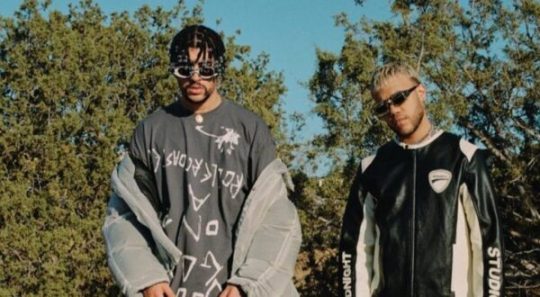
“Dakiti” by Bad Bunny and Jhay Cortez
I am all about this nocturnal, new wave-y style of reggaeton. The melody is catchy as hell, yet the production has a sinister, chilly vibe that wouldn’t sound out of place on an Italians Do It Better complication.
Megastar Bad Bunny’s husky vocals and Jhay Cortez’s more nasally voice make for a fun contrast as they trade verses. It’s a winning and charismatic combination!
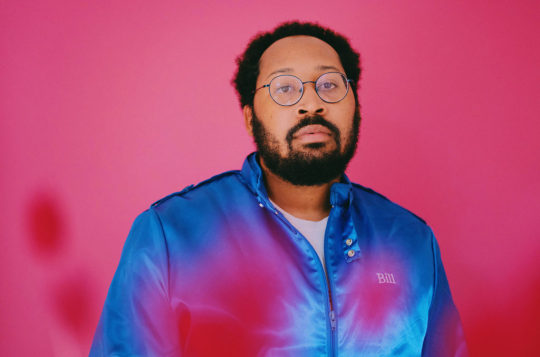
“Boomer” by Bartees Strange
When you hear the phrase “rap-rock,” you’re likely shuddering at the thought of Limp Bizkit. But that style can work, as promising new artist Bartees Strange — stage name of D.C. alt-rocker Bartees Leon Cox — proves on “Boomer.”
Cox spices up a solid mall-punk banger with some rap verses. And unlike the Fred Dursts of the world, he can actually, you know, rap.
But it’s the song’s explosive chorus, where Cox unleashes his howling vocals over charging guitars, where “Boomer” goes from an interesting song to a great one. If there’s any justice, he’ll be rising up the indie ranks very soon.

“Kyoto” by Phoebe Bridgers
I think I might be the only music nerd who didn’t adore Phoebe Bridgers’ new album, Punisher. For me, her mix of hushed, mostly-sincere singer-songwriter ballads with snarky lyrics just came off as tonally awkward. Her quips about Scientology and outlet malls in otherwise-sad ballads left a sour note for me.
But Bridgers’ unique songwriting style shines most on the few uptempo songs on Punisher, particularly “Kyoto.” Her goofy non sequiturs fit much better in a driving, anthemic song. And I’m immediately primed to enjoy any tune with a strong resemblance to Sufjan Stevens’ “Chicago.”
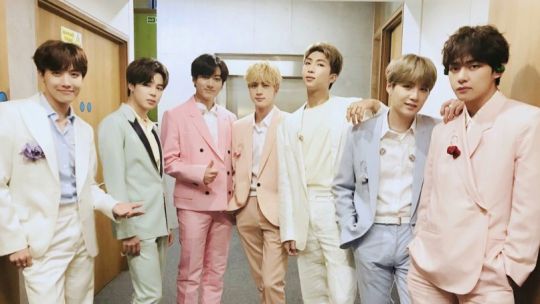
“Dynamite” by BTS
I’m not sure what it says about me that I didn’t learn to love BTS, the insanely-beloved South Korean boy band, until they finally recorded a song in English.
It’s not that I dislike their earlier, Korean-language stuff — “Boy With Luv” in particular is a banger. And BTS’ English-language lyrics on “Dynamite” don’t really have any meaning (they’re basically just a bunch of random catchphrases jammed together ... but they do sound good).
But there’s something immediate and pristine about “Dynamite” that makes it impossible to not adore. It’s a little too cleanly produced to be on the level of the Bruno Mars hits BTS were clearly aping, but the sense of fun is infectious. At the very least, it’s on equal footing with Taio Cruz’s classic of the same name.

“Comeback” by Carly Rae Jepsen feat. Bleachers
Carly Rae Jepsen can knock out wistful synthpop nuggets like this in her sleep. So can Jack Antonoff, who produced the track and provides some backing vocals.
But just because this isn’t anything new for the duo doesn’t mean the winning formula’s gone stale. “Comeback” is a worthy addition to both of their catalogues.
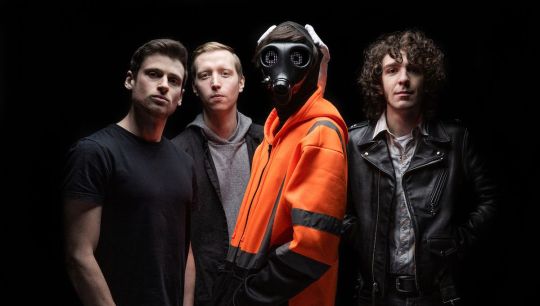
“Hollywood” by Car Seat Headrest
I can’t, in good conscience, put this song in the top 25. It’s an intentionally abrasive misfire from the Seattle indie rockers, who’ve done much better. Complaining about the vapidness and sleaziness of Hollywood is an overplayed topic, and letting side members of the band rap some of the verses (in goofy voices, no less) was maybe not the best call.
...but at the same time, there’s something to this objectively bad song that I keep returning to. Maybe it’s the embarrassing bluntness of the lyrics. Maybe it’s the forceful guitar riff. Maybe it’s because the aggro, visceral nature of “Hollywood” makes it a perfect workout song. Maybe it’s the goodwill left over from Car Seat Headrest’s last two albums, which were both stone-cold indie rock classics. I’m not sure!
But even though I know it’s not a good enough song to make the proper list, I can’t lie to myself and leave it out of the honorable mentions. It’s a banger in spite of itself.
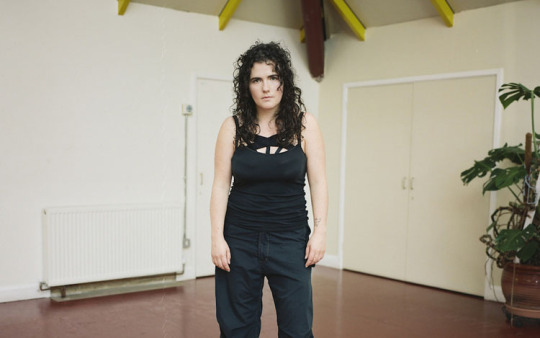
“24 Hours” by Georgia
"24 Hours” is the best possible version of a left-of-center synthpop club banger.
What makes it great — the pulsating energy, Georgia’s yearning vocals, the “whoo!” vocal samples — are obvious on immediate listen. But perhaps what makes “24 Hours” worthy of this list is its replay factor. It came out in January, and it still sounds great 11 months later.
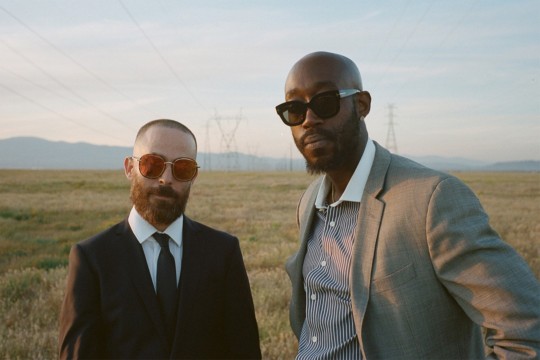
“1985″ by Freddie Gibbs and The Alchemist (song starts at 1:35)
We already knew — thanks to his two collaborative albums with Madlib — that Freddie Gibbs’ gruff flow sounds incredible over dusty samples. So why not team up with another producer who does something similar?
“1985″ is a prime example of knowing one’s strengths. The Alchemist’s production is stunningly gorgeous in his typical style, with a soaring guitar solo and a shuffling, dreamy beat. Gibbs pounces on it with the same ferocious street-life verses he’s been spitting for years. I’m glad to see Gibbs has figured out exactly which production sounds best for him to make Tiger King jokes and tell coke-dealing stories.

“Say Something” by Kylie Minogue
Aussie icon Kylie Minogue has been at it for 33 years at this point, reminding us every decade or so exactly why she’s stuck around.
“Say Something” is one of those reminder tracks — a burbling, irresistible, futuristic-yet-retro disco banger. The production is stellar, from the clanging guitar riff to the bouncy synth bass, and Minogue has a winking confidence on the track like she’s been doing this for decades (which, of course, she has). It’s exactly what you want out of a bubblegum pop jam.
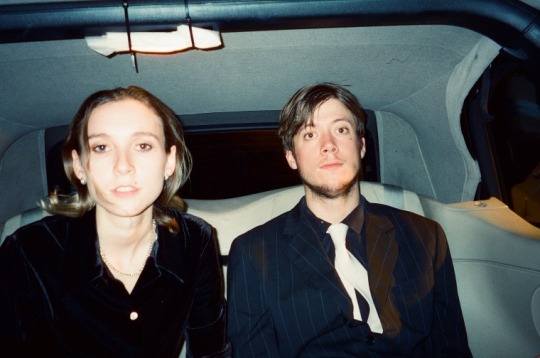
“Right Round The Clock” by Sorry
With their very-British boy-girl dueling vocals, new London indie rock outfit Sorry definitely have more of a whiff of The xx. But instead of hyper-minimalist, whispered tunes, “Right Round The Clock” has a thundering, droll swagger that grabs you by the throat when the chorus comes slamming in.
The thumping, piano-based sound of “Clock” has a bit of a jazzy flair, thanks to the flecks of sax that pop in here and there. And Sorry interpolates Tears For Fears’ classic “Mad World” in a gloriously tongue-in-cheek way on the chorus (at the very least, it’s far superior to that awful gloom-and-doom Donnie Darko cover).
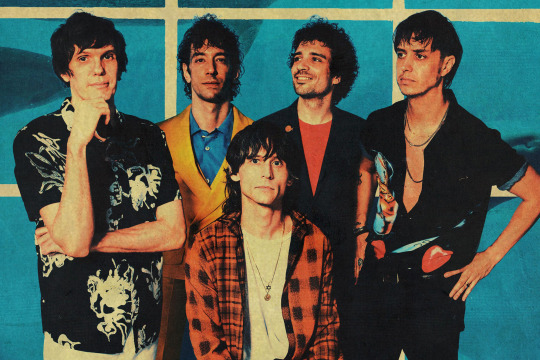
“Brooklyn Bridge To Chorus” by The Strokes
In a year FILLED with improbable comebacks from ‘00s and ‘90s artists (we’ll get some of to them in the top 25!), The Strokes may have been the least likely. The early ‘00s indie rock standard-bearers had been in sharp decline for nearly 15 years before their new album, The New Abnormal, dropped and the group returned to form.
“Brooklyn Bridge To Chorus” is a prime example of The Strokes’ invigorating comeback. It’s a killer new-wave jam that could’ve been been written by The Cars, with its jittery keyboards and impossibly catchy chorus. And of course, The Strokes’ most valuable asset — lead singer Julian Casablancas’ impossibly cool vocals — is here in full force.
It’s not quite Is This It, but “Brooklyn Bridge To Chorus” is still The Strokes’ best song in 14 years.
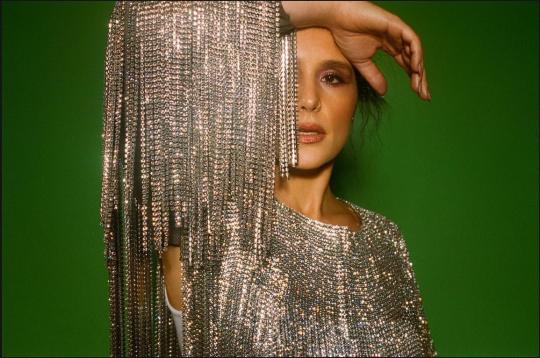
“Spotlight” by Jessie Ware
After a career making increasingly dull ballads, “Spotlight,” and Ware’s new What’s Your Pleasure? album, is a refreshing change of pace into sleek dance-pop.
I don’t know if “classy” has ever been used to describe disco, but that’s the best way to describe “Spotlight.” It’s undoubtably a dancefloor filler, with a funky groove and ‘70s string stabs, but there’s also a stateliness to it. It could fit equally well at Studio 54 as it would at a black-tie affair. I credit Ware with that, using her breathy vocals and charisma to strong effect here.

“Lilacs” by Waxahatchee
Any time you can write a song that sounds like an outtake from Tom Petty’s Wildflowers, I’m on board.
That’s a bit of a reductive way to describe “Lilacs” — Katie Crutchfield’s vocals are much more fiery, for starters. But there’s something nostalgic and welcoming about this southern-fried folk-rock song with oblique lyrics and catchy hooks for days.
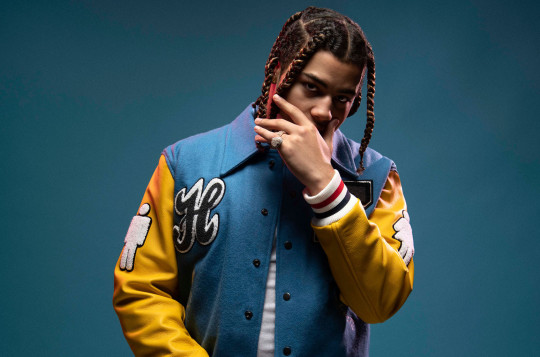
“Mood” by 24kGoldn feat. iann dior
Much of this new wave of emo-influenced rap isn’t really my thing. Maybe I’ve grown out of super-angsty and blunt songs about depression? Although I still love Smashing Pumpkins, so maybe that’s not the case. I can’t really answer why I don’t adore Juice WRLD or Lil Peep like so many others seem to.
But “Mood” — an unabashed sell-out, watered-down version of that sound – immediately clicked for me. I know 24kGoldn is trend-riding here, and that this is essentially a wildly shallow pop song. BUT! It’s a really catchy wildly shallow pop song! With bouncy pop-punk production that sounds like trap-ified Blink-182! (okay, it’s much better than that sounds, but you get the point)
I allow myself a guilty pleasure or two on my lists. “Mood” is one of those guilty pleasures this year. As the kids (presumably still?) say, it’s a vibe.
2 notes
·
View notes
Text
How to Learn Social Skills
In my course with Cal Newport, Top Performer, we have students engage in research to identify which career skills would benefit them most moving to the next phase of their career. Initially, we had expected these to be complex craftsman-like skills: writing, programming, design, etc.. To our surprise, students kept coming back telling us a somewhat different story: soft skills were the key to getting ahead.
This is a common story in larger organizations. In such organizations, being a brilliant programmer, designer or writer is useless if you can’t effectively coordinate with the people around you. And in bigger organizations, the people around you can easily become the biggest obstacle to that success.
Knowing how to deal with people artfully, therefore, can easily become a key skill to success. I know many incredibly successful people whose main asset is being really good with people.
This is doubly true outside your profession. Whether it’s dating, friends or family, having strong social skills is enormously helpful. Those who are skilled at dealing with people just find life easier. People want to help them and they have fewer conflicts and problems.
Two Ways of Thinking About Smarts
Social intelligence, like regular intelligence, is probably a mixture of innate predisposition and effortful learning. Some people, like it or not, have intrinsic personalities or capacities that make them more charismatic, likeable and socially intelligent.
However, at the same time, acquired knowledge and skill matters as well. Just because you have a certain predisposition to be good at picking up social cues or understanding social dynamics doesn’t guarantee you’ll do well in unfamiliar social settings, like public speaking or negotiating. Similarly, just because you find social situations more tricky than most doesn’t mean you can’t get good at those things.
In my mind, social skills aren’t fundamentally different from any other kind of skill. Yes, being an attractive, confident extravert who can easily read social cues makes things helpful. However, even if you lack these talents, you can acquire compensating skills to make up for it.
In my own life, I’ve definitely been smarter with things than with people. School subjects and intellectual topics come fairly easily to me, but social situations have generally required more work.
But given that bias, it means that working harder on my social skills has tended to have an even larger payoff than mastering a more cognitive skill. Even if that effort hasn’t put me into any exceptional range of ability, it has still benefited enormously because social skills are very often a situation where costs exceed benefits. If you can minimize the costs of poor social skills you’ll very often get much bigger advantages than if you go from being good to excellent. A lot of social savvy is simply making fewer obvious mistakes.
The Cost of Bad Social Skills
People who struggle with other skills do get made fun of in our society, but most people get somewhat of a pass for struggling with math, sports or intellectual skills. Social skills, however, are different. Poor social skills are a real disadvantage because having poor skills is often seen as a moral failure rather than a merely intellectual one. Creep, jerk, snob, weirdo and many other slurs are often attributed to people who don’t have particularly ill intentions, they are simply lacking in normal social graces.
Good social skills, in my opinion, is more risk-avoidance than reward-seeking. While people like to laud those with magical charisma that can accomplish incredible things, I feel this isn’t the usual way to think about social skills. Rather, having good social skills is largely about avoiding misfires which cause mutual communication to break down.
Social skills are a bit like the ship that moves you across the sea of life. It doesn’t matter how fast your engine is or how clever your navigation is, if you’ve got leaks in the hull, you won’t get very far.
Many people I’ve communicated with through this blog feel that there social skills are what hold them back. Given my own experience with trying to deliberately improve this aspect of my life, I’d like to share some thoughts on how you might be able to get better at it.
How to Get Good at Communicating
Given that learning social skills is just like learning any other skill, you can exploit that fact to design a plan to get better at it. There’s no magic to being good with people that’s any different from being good at math, skiing or chess. True, your talents may be different in each area, but once you take your current position as a given, the learning process is largely the same.
The first thing to realize about learning any skill is that learning tends to be rather specific. You don’t learn “math” you learn something much more specific, say the chain rule for a taking a derivative or the sine law for triangles. Similarly, you don’t learn “social skills” broadly speaking, you master a particular aspect, such as negotiating with your boss or reading emotions during a conflict.
That specificity is key to starting the learning process. Yes, it may be disappointing to realize you face a bewildering array of social situations when your goal is to get better at all of them. Your task may be broad. But this is, in principle, no different from learning any large subject, whether it’s programming, math or design.
One challenge of social skills, however, is that given they aren’t taught in a normal curriculum, it may be somewhat challenging to see where to start. Given this, I’d like to suggest some ways of thinking about how social skills divide up, broadly speaking, so you can have an easier time picking which specific skills you’d like to start improving.
Listening Versus Speaking
The first distinction that I think is important is that social skills often decompose into a part which is mostly about listening and a part which is mostly about speaking. True, these two aspects usually get blended together via feedback in normal interactions, but I think these components nonetheless rely on different strengths. Therefore, it’s possible to be good at speaking but bad at listening or vice versa.
Public speaking, composing emails, writing a sales page, telling a story, projecting confidence in your voice and body language, these are all speaking skills. Here the goal is that, given your understanding of the listeners’ states of mind, the context and the likely reception of your message, you craft a message that best meets your goal.
A key part of effective speaking, however, is understanding the listerners’ states of mind. Many good speakers fail to land a joke, for instance, because they don’t understand very well how the person who is listening is actually processing what is being said.
Because communication failures tends to happen after you’ve sent your message and then get a response, too many people with poor social skills tend to think they have a problem with speaking skills, instead of a problem with listening skills. Their communication may be fine, it’s just that they don’t really understand the mind of the person they are speaking with so what they say doesn’t have the intended effect.
Think of that guy you know who tells inappropriate jokes that everyone awkwardly laughs at and then, when that person is gone, they complain about him. He may see his jokes fail to land and blame his delivery—if only he told it right, they’d think it was funny. This may be the case, but far more often it’s simply that he didn’t properly read the minds of the people in the room and told something that was wildly out of sync with that reality.
Social Skills are 80% Listening
It would be a mistake, I believe, to think that listening and speaking are equal parts of the difficulty of communicating. My guess is that listening—meaning all the effort taken to correctly understand the social context and minds of other people—is probably more like 80% of social skills, with the last 20% being delivery of your message.
It is possible to find people who have keen social instincts but trip over the speaking part of communicating. However, this usually occurs when there’s some other factor distorting their performance. The person who is too nervous to speak in public, or who struggles with organizing their thoughts in an email, might be of this kind.
In most cases, I’d say it’s the opposite. The person is fine at speaking when they correctly guess the social situation and minds of others, but since they have trouble doing that, they make a lot more mistakes. Their jokes would be funny, their comments would persuade, if other people’s minds matched the mental representation they have.
This ability to form a mental representation of other people, what psychologists call theory of mind, is a lot more challenging than simply organizing your own thoughts and goals effectively.
How to Get Better
The way to improve at anything is to practice. Social skills, and listening in particular, are no different.
Feedback is an important mechanism for practice. You try something, you get a response, and you use that response to adjust your output for next time. I’m describing this as a mechanical process, but really it mostly takes place unconsciously. Motor skills like walking and throwing a ball likely also use some kind of feedback in this way, albeit not at a conscious level.
The challenge with improving your understanding of the mental states of others is the problem of subtext. People rarely say directly what they mean. This means, when you make a social misstep, diagnosing what you did wrong may not be obvious. This is compounded by the fact that, if you’re bad at reading minds, you’ll also be bad at processing social feedback.
This is a tough bootstrapping problem and something similar occurs in other areas of learning. You don’t know what you don’t know, so even diagnosing your problems at first can be difficult.
One way I’ve seen a lot of people try to deal with this is to first learn a lot of theory. That is, if they could only make explicit all the common subtext they’re dealing with, they would be able to more easily consciously diagnose their mistakes. This is particularly prevalent in dating advice for men with poor social skills.
The problem with this approach is twofold. First, grand theories of social skills are often wrong. We don’t understand social skills nearly as well as other human fields, so basing your opinions on some well-articulated theory of hidden motivations may have a lot of mistakes. This doesn’t mean theorizing is useless, just that it isn’t an infallible guide for practical benefits.
The second problem is that subtext is usually implicit for a good reason. People do have hidden motives and unconscious behavior, yes. But dealing with those hidden motives consciously doesn’t usually win you friends and allies. Treating what is implicit as explicit is a sign of social ineptitude itself, so doing this step of conversion deliberately often ends up with worse outcomes at first, rather than better ones.
The theory-driven approach to learning to understand other people is often like trying to understand art by having detailed models of the chemistry of paint. It’s not useless, but it would be far better to have your effort invested in practicing brushstrokes.
The alternative, of course, is to spend a lot more time practicing. In this context, having some theories to explain things you see socially can be helpful, but usually because you’re already building an intuition about other people. You’re training your mind to pick up on what other people are thinking intuitively instead of trying to work it out consciously.
Keys to Practicing Social Skills
Practicing this is tough, but I’ve found the following broad strategy works pretty well:
Narrow down your focus to a particular context.
Find a way to engage in that environment at a higher-than-average rate.
If possible, get a peer or coach to give you feedback.
The first step is to drill down into the specific context you’d like to build mastery. It would be nice if all social skill is perfectly transferable and you only need to learn it once for it to apply everywhere. Unfortunately, all the evidence on how people learn points in the other direction: skills and knowledge tend to be learning specifically first, and only generalize weakly after large investment.
Next, you need to find an environment which will allow you to practice at a higher-than-average rate. I’ve done this a few times in my life for various skills I wanted to improve. When I wanted to get better at public speaking, I joined Toastmasters. When I wanted to get better at selling, I volunteered as a fundraiser for a student group. When I wanted to get better at leadership, I volunteered to take over the Toastmasters club I had previously been a member.
Practicing on your own can work, but the main disadvantage is that it’s often a lot harder to see yourself in a social interaction the way others see you. Having a friend who is also practicing and can comment on you is often huge, because that person can see what mistakes you’re making more easily than you can. Even better is a coach, someone who you recognize as being better at the skill you want to master, although good coaches and mentors aren’t always easy to find (especially if you have poor social skills!).
How Much Better Can You Get?
The research on intelligence seems fairly clear that while we have the ability to improve in specific areas quite easily, the more general an ability we look at, the harder it is to improve. Thus, learning a specific mathematical fact is well within the range of most people’s abilities. Getting better at all math through massive accumulated knowledge and skill is possible, but harder. Being generally more intelligent on every possible task is we’re not even sure can be done.
I think the same is true of social skills. If you have very poor social skills, you can definitely still learn to master particular social habits and skills. Saying “ah” or “um” less when you speak or learning to make eye contact when another person is talking, are both highly learnable skills.
With massive practice you might even get good at a large enough range of social skills that you’re “good” or “adequate” for most purposes. You may even become excellent in some narrow specializations of social skills like public speaking, negotiating or having a good relationship.
However its likely that even with serious practice, there may be novel social situations where you’re a bit slower than someone who is more naturally gifted. But that’s totally fine! The fact that there may be some fixed parts of ability at some deeper level shouldn’t negate the possibility of meaningful improvement at other levels.
I know myself that I’m probably not going to reach perfect levels of social skills. But, with practice, I’ve gotten pretty good at some select skills that really matter to my life. I’ve also become adequate at many other skills I used to be quite bad at. In the long-term, I expect I’ll be able to get better at yet other skills I’m still somewhat weak on.
Similarly, if you feel like poor social skills hold you back in an area of your life, or even that you’d like to go from adequate to excellent with a particular skill, I think you can improve it deliberately just like anything else. All you need is patience, persistence and practice.
How to Learn Social Skills syndicated from https://pricelessmomentweb.wordpress.com/
0 notes